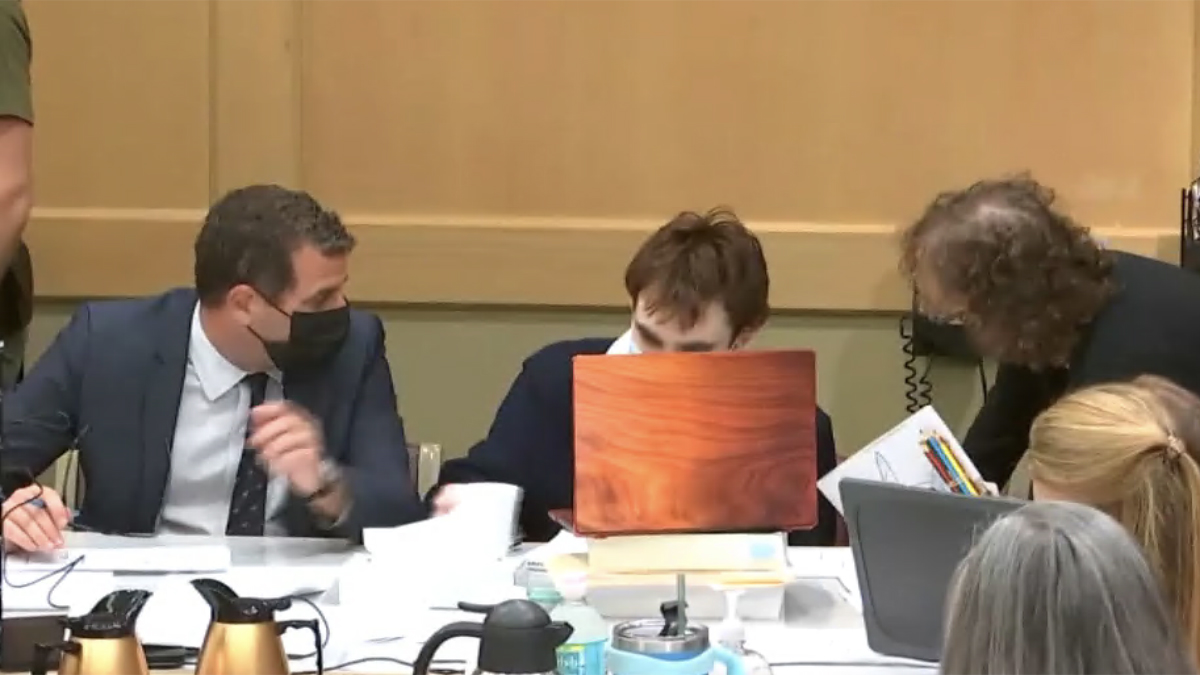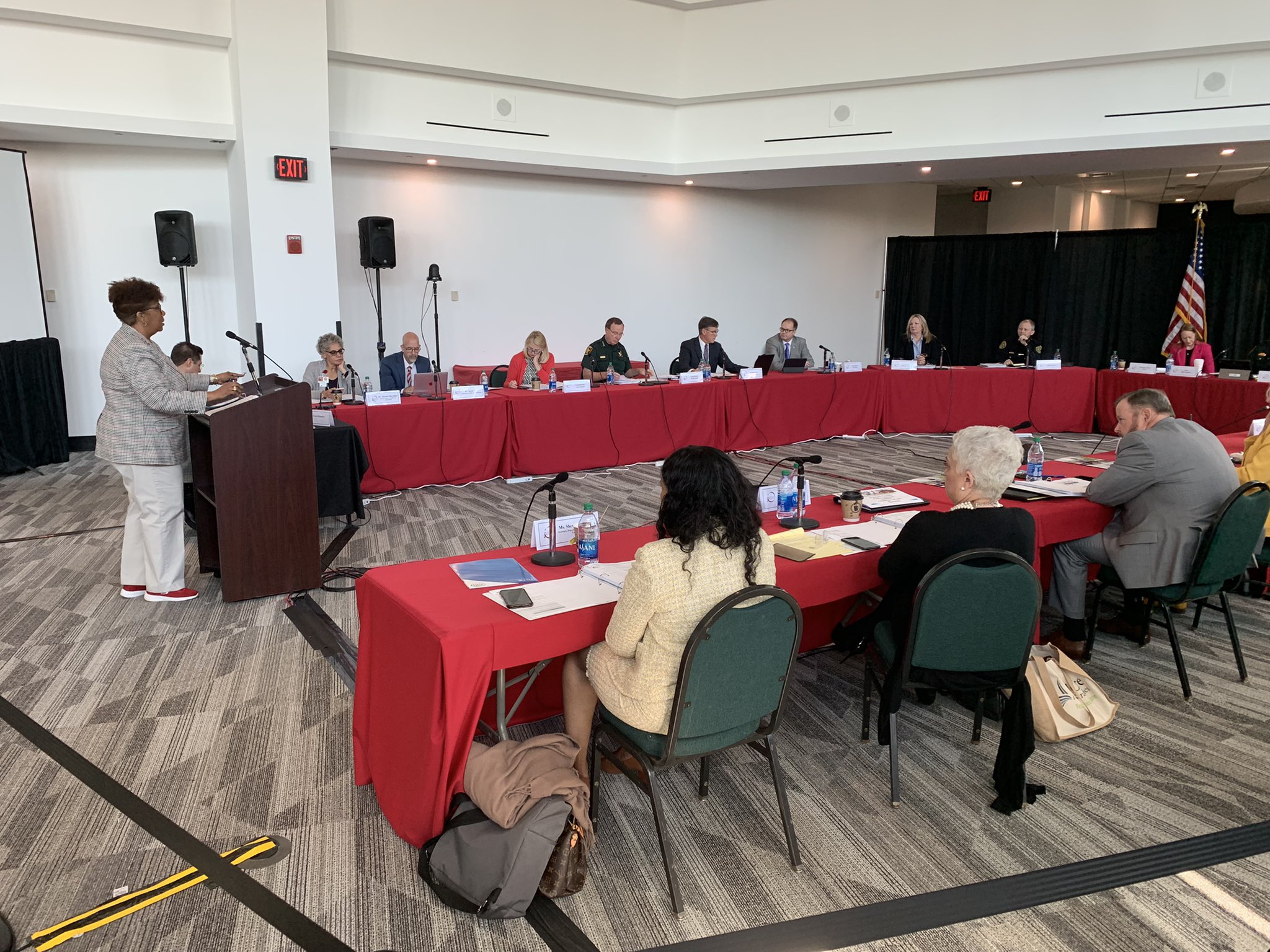The gunman who killed 14 students and three staff members at a Parkland high school will plead guilty to their murders next week, his attorneys said Friday, bringing some closure to a South Florida community more than three years after an attack that sparked a nationwide movement for gun control.
After speaking with his lawyers, Nikolas Cruz entered a guilty plea on Friday to four felony battery charges for attacking a jail guard, one week after jury selection in the case concluded. The plea took place in a hastily arranged court hearing.
Cruz had been charged with attempted battery on a law enforcement officer, battery on a law enforcement officer, depriving an officer means of protection and attempted use of a self-defense weapon against an officer.
The Hurricane season is on. Our meteorologists are ready. Sign up for the NBC 6 Weather newsletter to get the latest forecast in your inbox.
Attorneys for Cruz told Circuit Judge Elizabeth Scherer that he will plead guilty Wednesday to 17 counts of first-degree murder in the February 2018 shooting at Marjory Stoneman Douglas High School.
The pleas will come with no conditions and prosecutors still plan to seek the death penalty. That will be decided by a jury, with the judge hoping to start the trial in January.
Parkland School Tragedy
Among those in the courtroom Friday was the family of Nick Dworet, one of the 17 victims in the shooting.
Attorney Alex Arreaza represents Anthony Borges, a Parkland student who was 15 when he was gravely wounded during the shooting. Arreaza said the news of the guilty pleas was an unexpected development that brings the family some relief.
“It all came down as a surprise to us,” Arreaza said. “Anthony and his family are glad this is finally coming to an end, and he can move on.”
Andrew Pollack, whose 18-year-old daughter Meadow was killed, said the only thing that’s really changed is that Cruz is now closer to being sentenced.
“He’ll either get death, or life in prison,” Pollack said, adding that he’s more focused on the systemic failures in the school system that led to the shooting. “Death by lethal injection seems too peaceful to me. I’d rather see a hanging in a public square.”
Attorney David Weinstein says the defense may gamble that any sentence for Cruz would life behind bars, not the death penalty.
"If the defendant is willing to plead guilty straight up to the court, he can do that," Weinstein said. "His option becomes, after he has admitted to these crimes, to move right to the death phase and to allow his attorneys to convince a jury of 12 people...that the government can not provide enough aggravating factors to sentence him to death."
NBC 6 spoke with Manuel Oliver, the father of MSD shooting victim Joaquin, who said the death penalty should remain on the table regardless of whether there is a guilty plea.
"This person is guilty for murdering 17 people and for that, he needs to pay," Oliver said. "If he wants to skip trial, that's fine. For me, it's okay. I was never happy with the fact I needed to go to trial and go through the whole nightmare that will imply."
Preparations have been ongoing for what would be the biggest murder trial in Broward County history, and one of the most infamous crimes ever in Florida.
Cruz, 23, was arrested about an hour after the attack with an AR-15 semiautomatic rifle on Valentine’s Day 2018.
His lawyers have repeatedly offered to plead guilty in return for a guaranteed sentence of life in prison, but prosecutors have refused to drop their pursuit of the death penalty. A guilty plea would both avoid a traumatic, lengthy trial and still allow a jury to decide Cruz’s fate.
Much of the penalty phase would likely focus on Cruz’s mental condition at the time of the slayings, with prosecutors emphasizing their horrific nature and Cruz’s intensive planning beforehand.
Tony Montalto, president of the Stand With Parkland group that represents the families of the victims, said Thursday night that neither he nor any parent he has spoken to has been informed that Cruz would plead guilty, but he is not surprised. Montalto’s 14-year-old daughter died in the shooting.
“There is very little doubt he murdered my beautiful daughter, Gina, or the 16 other victims. There is very little doubt he shot the other 17 people and terrorized all the other students at the school. We just hope the system gives him justice,” Montalto said.
When asked if he believes Cruz deserves the death penalty, Montalto said, “As a society, we need to disincentivize to the maximum extent possible anyone from attacking our schools, whatever form that takes.”
The shooting happened on Valentine’s Day, minutes before the end of the school day. Students had exchanged balloons, flowers and other gifts and many were dressed in red.
Cruz, then 19, arrived at the campus that afternoon in an Uber, assembled his rifle in a bathroom and then opened fire on students and staff members, the smoke from his rifle setting off the fire alarm.
Outside the building, sheriff’s deputy Scot Peterson, the school’s longtime resource officer, heard the shots but did not enter the building — he drew his gun and hid behind a column and wall, video shows. He told investigators he did not know where the shots were coming from, but they said his radio transmissions show he did.
Peterson has been charged with felony child neglect for allegedly failing to protect the students and perjury for allegedly lying to investigators. He has pleaded not guilty and proclaimed his innocence in interviews. He resigned shortly after the shooting before he could be fired.
In the aftermath of the shooting, Parkland student activists formed March for Our Lives, a group that rallied hundreds of thousands around the country for tighter gun laws, including a nationally televised march in Washington, D.C. Parents also made impassioned pleas for accountability and policies aimed at halting gun violence.
_____
Anderson reported from St. Petersburg, Florida.



